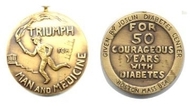For a lot of people, this week starts a new schedule. Some will have to wake up earlier to get kids off to school on time. Some will stay up later to complete homework assignments.
Some are starting college.
For those beginning the college trek who also live with diabetes, that is a HUGE transition. Almost too large to comprehend all at once, particularly at the age of eighteen.
I’m just saying, while many leaving now for college are concerned with making friends and gaining The Freshman Fifteen and finding classes and managing for themselves without parents in-home not to mention doing laundry for the first time, those with diabetes are also wondering how on earth to manage their disease on top of all of it.
I’m sure a bit of them is somewhat relieved that their parents can’t see what they’re eating, can’t see the meter screen, and thus can’t lecture as often.
It’s a LOT easier to hide from your diabetes when you are on your own at last.
It’s a wreck of a situation: you’re feeding yourself in the cafeteria (where is the package with the carbohydrate count and ingredients listed?), you’re staying out at different times doing fun stuff (shoot what time is it; do I need to take a shot?), you’re maybe drinking with abandon (who the hell cares I think I’m having fun!) and where on earth did you leave your meter. Maybe your roommate moved it or covered it with their own stuff. Shoot.
Oh, well.
To say that a move to college is a crazy time is an understatement.
I know for myself I had to learn a new way to care for myself and my body; figuring out when I felt sick enough to go to student health, learning when I had the flu that the cafeteria would bring food to my room (score on that one), figuring out where the pharmacy was and what friend would drive me there when I needed insulin or syringes.
It was a struggle, and I wouldn’t let myself see it at the time. I was too concerned about everything else that was going on with college life to factor in what was going on with my disease!
Looking back at it, it would have been better for me if I had someone who checked in with me maybe a couple times a week, just to see in a nonjudgmental way if there was anything going on with my diabetes they could help with. It would have been better for me if I could have had insulin mailed to me (score again for almost everyone with pharmacy coverage now). It would have been better if I kept my diabetes stuff all in one spot and had been able to sit with a friend or roommate for a half an hour and tell them what I needed them to know.
I would have felt better, I know.
I’ve never wanted anyone to feel sorry for me, but I think having a few more people wholly on my team in a way I felt both emotionally and physically is something everyone deserves. College is tough, and so is diabetes.
We’re all working at this, one day at a time. There IS a way to get through college with confidence, health, a smile and oh yeah some classroom learning, too.
If you want to talk about more specific strategies for you or your son or daughter away at college, I’m here!
